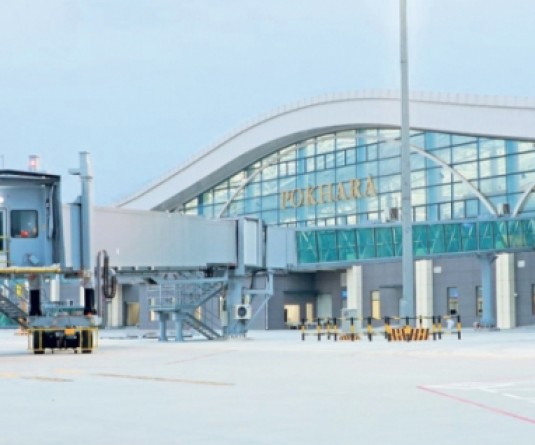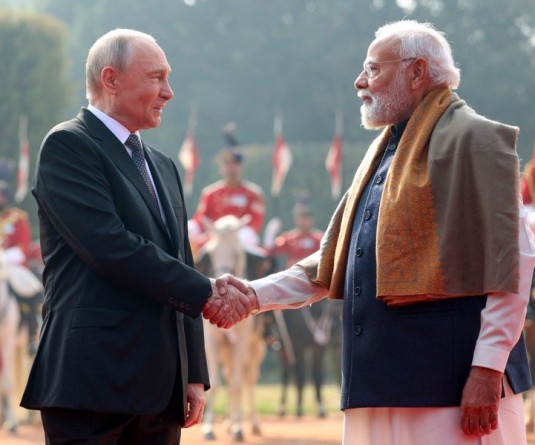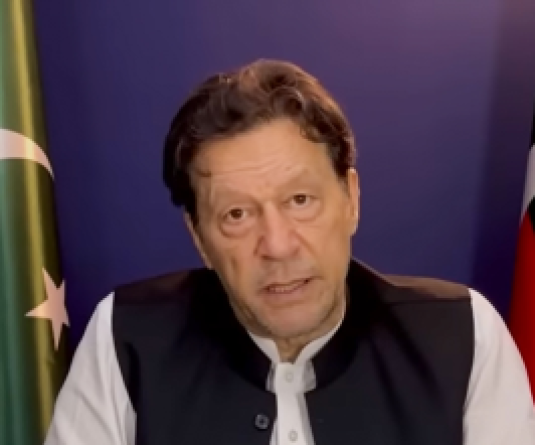
Libyan gunmen from the forces against Libyan leader Moammar Gadhafi fire in the air during a mass funeral for rebel gunmen killed in fighting in Ajdabiya, eastern Libya on Thursday, March 3. (AP Photo)
AL-UQAYLA, March 4 (Reuters): Libyan rebels vowing "victory or death" advanced toward a major oil terminal on Friday, calling for foreign air strikes to set up a "no-fly" zone after three days of attacks by Muammar Gaddafi's warplanes. Eastern-based rebels told Reuters they were open to talks only on Gaddafi's exile or resignation following attacks on civilians that have provoked international condemnation, a raft of arms and economic sanctions and a war crimes probe.
In Tripoli, opponents of Gaddafi prepared to march in the capital after prayers, but the authorities were preventing foreign media from reporting independently on the protests. "Victory or death ... We will not stop until we liberate all this country," Mustafa Abdel Jalil, head of the rebel National Libyan Council told supporters of a two-week-old uprising that has shaken Gaddafi's grip on the North African oil producer. Ahmed Jabreel, an aide to Abdel Jalil, said if there was any negotiation "it will be on one single thing -- how Gaddafi is going to leave the country or step down so we can save lives. There is nothing else to negotiate."
Rebel volunteers defending the opposition's expanding grip on a key coast road said a rocket attack by a government warplane just missed a rebel-held eastern military base which houses a big ammunition store in the town of Ajdabiyah. "We're going to take it all, Ras Lanuf, Tripoli," Magdi Mohammed, an army defector, fingering the pin of a grenade, told Reuters at the rebels' front-line checkpoint. Western nations have called for Gaddafi to go and are considering various options including the imposition of a no-fly zone, but are wary about any offensive military involvement to stabilize the world's 12th-largest oil exporter.
The air attacks have failed to stop the rebels using the coast road to push their front line west of Brega, an oil terminal town 800 km (500 miles) east of Tripoli. They said they had driven back troops loyal to Gaddafi to Ras Lanuf, site of another major oil terminal, 600 km (400 miles) east of Tripoli.
Amid growing international concern about dwindling food and medical supplies in some rebel-held areas, diplomatic efforts are accelerating to end a conflict that the West fears could stir a mass refugee exodus across the Mediterranean to Europe. U.S. President Barack Obama said he was concerned a bloody stalemate could develop between Gaddafi and rebel forces but gave no sign of a willingness to intervene militarily.
"Muammar Gaddafi has lost the legitimacy to lead and he must leave," Obama said, the first time he has called in public for Gaddafi to leave Libya, although he has urged his exit in written statements by the White House.
The popular uprising against Gaddafi's 41-year rule, the bloodiest yet against a long-serving ruler in the Middle East or North Africa, has knocked out nearly 50 percent of the OPEC-member's 1.6 million barrels of oil per day output, the bedrock of its economy. The upheaval is causing a humanitarian crisis, especially on the Tunisian border where tens of thousands of foreign workers have fled to safety. But an organized international airlift started to relieve the human flood from Libya as word spread to refugees that planes were taking them home.
Venezuela's President Hugo Chavez pushed a vague peace plan for Libya, saying he had spoken to his friend Gaddafi who had supported the proposal for a negotiating commission, accusing the West of eyeing the North African nation's oil. But Saif al-Islam, a son of Gaddafi, said on Thursday that Libya did not need outside help to solve its troubles. Rebels holding the port city of Zawiyah, 50 km (30 miles) west of the capital, Tripoli, said they had launched counter-attacks against Gaddafi's forces massing in the area and warned supplies of medicines and baby milk were running low.
ASSET FREEZE
"Women and children are at home while the men are armed and roam the streets and city limits in anticipation of a major attack by pro-Gaddafi forces," resident Ibrahim told Reuters by telephone, giving only one name. The Pentagon said there was evidence Gaddafi's forces were dropping ordnance but it was not clear if warplanes were bombing rebel forces.
As international efforts progressed to isolate the Libyan leader, Austria widened an asset freeze list to include a top official at the Libyan Investment Authority, Mustafa Zarti, because of possible ties to Gaddafi's inner circle.
In Zawiyah, residents said Gaddafi's forces had deployed in large numbers over the past days. "We estimate there are 2,000 on the southern side of town and have gathered 80 armored vehicles from the east," resident Ibrahim said, adding a battalion had also come from the west side.
His account could not immediately be verified.
The government says it is not using military force to retake rebel-held cities although one official did not rule it out if all other options were exhausted. The International Committee of the Red Cross (ICRC) said reports indicated two Libyan Red Crescent ambulances were shot at in Misrata, west of Benghazi, and two volunteers were wounded. The ICRC has 12 staff in Benghazi including a medical team visiting areas outside the city in cooperation with the Libyan Red Crescent.
In Tripoli, opponents of Gaddafi prepared to march in the capital after prayers, but the authorities were preventing foreign media from reporting independently on the protests. "Victory or death ... We will not stop until we liberate all this country," Mustafa Abdel Jalil, head of the rebel National Libyan Council told supporters of a two-week-old uprising that has shaken Gaddafi's grip on the North African oil producer. Ahmed Jabreel, an aide to Abdel Jalil, said if there was any negotiation "it will be on one single thing -- how Gaddafi is going to leave the country or step down so we can save lives. There is nothing else to negotiate."
Rebel volunteers defending the opposition's expanding grip on a key coast road said a rocket attack by a government warplane just missed a rebel-held eastern military base which houses a big ammunition store in the town of Ajdabiyah. "We're going to take it all, Ras Lanuf, Tripoli," Magdi Mohammed, an army defector, fingering the pin of a grenade, told Reuters at the rebels' front-line checkpoint. Western nations have called for Gaddafi to go and are considering various options including the imposition of a no-fly zone, but are wary about any offensive military involvement to stabilize the world's 12th-largest oil exporter.
The air attacks have failed to stop the rebels using the coast road to push their front line west of Brega, an oil terminal town 800 km (500 miles) east of Tripoli. They said they had driven back troops loyal to Gaddafi to Ras Lanuf, site of another major oil terminal, 600 km (400 miles) east of Tripoli.
Amid growing international concern about dwindling food and medical supplies in some rebel-held areas, diplomatic efforts are accelerating to end a conflict that the West fears could stir a mass refugee exodus across the Mediterranean to Europe. U.S. President Barack Obama said he was concerned a bloody stalemate could develop between Gaddafi and rebel forces but gave no sign of a willingness to intervene militarily.
"Muammar Gaddafi has lost the legitimacy to lead and he must leave," Obama said, the first time he has called in public for Gaddafi to leave Libya, although he has urged his exit in written statements by the White House.
The popular uprising against Gaddafi's 41-year rule, the bloodiest yet against a long-serving ruler in the Middle East or North Africa, has knocked out nearly 50 percent of the OPEC-member's 1.6 million barrels of oil per day output, the bedrock of its economy. The upheaval is causing a humanitarian crisis, especially on the Tunisian border where tens of thousands of foreign workers have fled to safety. But an organized international airlift started to relieve the human flood from Libya as word spread to refugees that planes were taking them home.
Venezuela's President Hugo Chavez pushed a vague peace plan for Libya, saying he had spoken to his friend Gaddafi who had supported the proposal for a negotiating commission, accusing the West of eyeing the North African nation's oil. But Saif al-Islam, a son of Gaddafi, said on Thursday that Libya did not need outside help to solve its troubles. Rebels holding the port city of Zawiyah, 50 km (30 miles) west of the capital, Tripoli, said they had launched counter-attacks against Gaddafi's forces massing in the area and warned supplies of medicines and baby milk were running low.
ASSET FREEZE
"Women and children are at home while the men are armed and roam the streets and city limits in anticipation of a major attack by pro-Gaddafi forces," resident Ibrahim told Reuters by telephone, giving only one name. The Pentagon said there was evidence Gaddafi's forces were dropping ordnance but it was not clear if warplanes were bombing rebel forces.
As international efforts progressed to isolate the Libyan leader, Austria widened an asset freeze list to include a top official at the Libyan Investment Authority, Mustafa Zarti, because of possible ties to Gaddafi's inner circle.
In Zawiyah, residents said Gaddafi's forces had deployed in large numbers over the past days. "We estimate there are 2,000 on the southern side of town and have gathered 80 armored vehicles from the east," resident Ibrahim said, adding a battalion had also come from the west side.
His account could not immediately be verified.
The government says it is not using military force to retake rebel-held cities although one official did not rule it out if all other options were exhausted. The International Committee of the Red Cross (ICRC) said reports indicated two Libyan Red Crescent ambulances were shot at in Misrata, west of Benghazi, and two volunteers were wounded. The ICRC has 12 staff in Benghazi including a medical team visiting areas outside the city in cooperation with the Libyan Red Crescent.
Gaddafi faces war crimes trial
AL-UQAYLA, March 4 (Reuters): Muammar Gaddafi struck at rebel control of a key Libyan coastal road for a second day on Thursday but received a warning he would be held to account at The Hague for suspected crimes by his security forces. In Paris, French foreign minister Alain Juppe said France and Britain would support the idea of setting up a no-fly zone over Libya if Gaddafi’s forces continued to attack civilians. In Libya’s east, the site of a struggle for control of a strategically vital Mediterranean coastal road and oil industry facilities, witnesses said a warplane for a second day bombed the oil terminal town Brega, 800 km east of Tripoli. Warplanes also launched two raids against the nearby rebel-held town of Ajbadiya, witnesses said.
Gaddafi’s son, Saif el-Islam, said the bombing of Brega was intended to scare off militia fighters and gain control of oil installations. “First of all the bombs (were) just to frighten them to go away,” he said. “Not to frighten them.” But on the ground, events appeared to turn against Gaddafi, as rebels spearheading the unprecedented popular revolt pushed their frontline against government loyalists west of Brega, where they had repulsed an attack a day earlier. The opposition fighters said troops loyal to Gaddafi had been driven back to Ras Lanuf, home to another major oil terminal 600 km east of Tripoli. They also said they had captured a group of mercenaries.
In The Hague, International Criminal Court prosecutor Luis Moreno-Ocampo said Gaddafi and members of his inner circle, including some of his sons, could be investigated for alleged crimes committed since the uprising broke out in mid-February.
AL-UQAYLA, March 4 (Reuters): Muammar Gaddafi struck at rebel control of a key Libyan coastal road for a second day on Thursday but received a warning he would be held to account at The Hague for suspected crimes by his security forces. In Paris, French foreign minister Alain Juppe said France and Britain would support the idea of setting up a no-fly zone over Libya if Gaddafi’s forces continued to attack civilians. In Libya’s east, the site of a struggle for control of a strategically vital Mediterranean coastal road and oil industry facilities, witnesses said a warplane for a second day bombed the oil terminal town Brega, 800 km east of Tripoli. Warplanes also launched two raids against the nearby rebel-held town of Ajbadiya, witnesses said.
Gaddafi’s son, Saif el-Islam, said the bombing of Brega was intended to scare off militia fighters and gain control of oil installations. “First of all the bombs (were) just to frighten them to go away,” he said. “Not to frighten them.” But on the ground, events appeared to turn against Gaddafi, as rebels spearheading the unprecedented popular revolt pushed their frontline against government loyalists west of Brega, where they had repulsed an attack a day earlier. The opposition fighters said troops loyal to Gaddafi had been driven back to Ras Lanuf, home to another major oil terminal 600 km east of Tripoli. They also said they had captured a group of mercenaries.
In The Hague, International Criminal Court prosecutor Luis Moreno-Ocampo said Gaddafi and members of his inner circle, including some of his sons, could be investigated for alleged crimes committed since the uprising broke out in mid-February.






